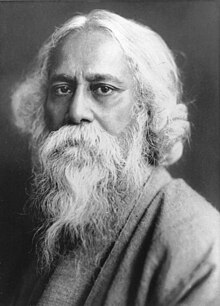It’s easy to get caught up in the habit of sharing quotes on social media, thinking they make us sound wise or enlightened. But how often do we really sit down and dissect these words, applying their lessons to our lives? Take Rabindranath Tagore’s quote, “It is very simple to be happy, but it is very difficult to be simple.” Sure, it sounds profound on the surface, but without delving into Tagore’s philosophy, the socio-cultural context of his time, and his personal experiences that shaped his outlook, it’s just another catchy line. Understanding and applying such wisdom isn’t a casual scroll-and-share moment; it requires us to engage deeply, to learn the nuances of his teachings, and to reflect on how simplicity and happiness play out in our own complex lives.
Consider another popular quote from Albert Einstein: “Insanity is doing the same thing over and over again and expecting different results.” We’ve all seen this one plastered across motivational posters, Instagram feeds, and LinkedIn profiles, but how often do we examine the truth behind it? Just today, a friend vented to me about his struggles in the job market. He had sent out hundreds of resumes, yet his inbox remained empty. His immediate response was to blame external factors—the job market, his qualifications, his visa status—without ever considering that maybe his approach was flawed. Perhaps his resume was too generic or didn’t cater to the specific skills sought by employers. Or maybe the companies he targeted favored internal candidates, making his applications an afterthought. It’s a perfect example of how we repeat the same actions without evaluating the process or adapting to new information, expecting things to magically change.
This pattern of behavior is pervasive in our lives. We fall into routines and patterns, repeating the same actions in our careers, relationships, and personal goals, often attributing failures to factors outside of our control. We blame the economy for financial struggles, our upbringing for our insecurities, or our lack of connections for career stagnation. Rarely do we stop to scrutinize the process, to ask ourselves if we’re truly adapting and learning, or if we’re merely stuck in a cycle of repetition. It’s not our capabilities that should be under question, but our strategies and our openness to change.
It’s a harsh reality that effort alone doesn’t guarantee success. We like to believe that if we put in the work, we deserve the outcome we desire. But the truth is, hard work in the wrong direction is just wasted energy. This disconnect between effort and outcome can be disheartening, especially when we’ve been conditioned to think that perseverance is all it takes. The challenge lies not in our willingness to work hard, but in our ability to critically assess our methods and pivot when needed.
This failure to translate knowledge into action extends beyond job applications and into our everyday lives. In school, we were taught facts and theories, but rarely were we shown how to apply that knowledge practically. We memorized formulas but didn’t learn how to solve real-world problems with them. We studied historical events but weren’t encouraged to draw parallels to current issues. This gap between knowing and doing creates a blind spot where we continue to accumulate knowledge without understanding its relevance or how to adapt it to our personal journey.
In essence, understanding famous quotes—or any wisdom, really—isn’t just about comprehension; it’s about integration. It’s about examining our actions, questioning our assumptions, and making thoughtful adjustments. Wisdom isn’t a one-size-fits-all; it’s a toolkit. And like any tool, its effectiveness depends on how, when, and why you use it. So, the next time we find ourselves sharing a quote, maybe we should pause and ask: Do I really get this? Am I applying it? Or am I just adding another line to my social media feed?
Follow me on IG@AliMehediOfficial
